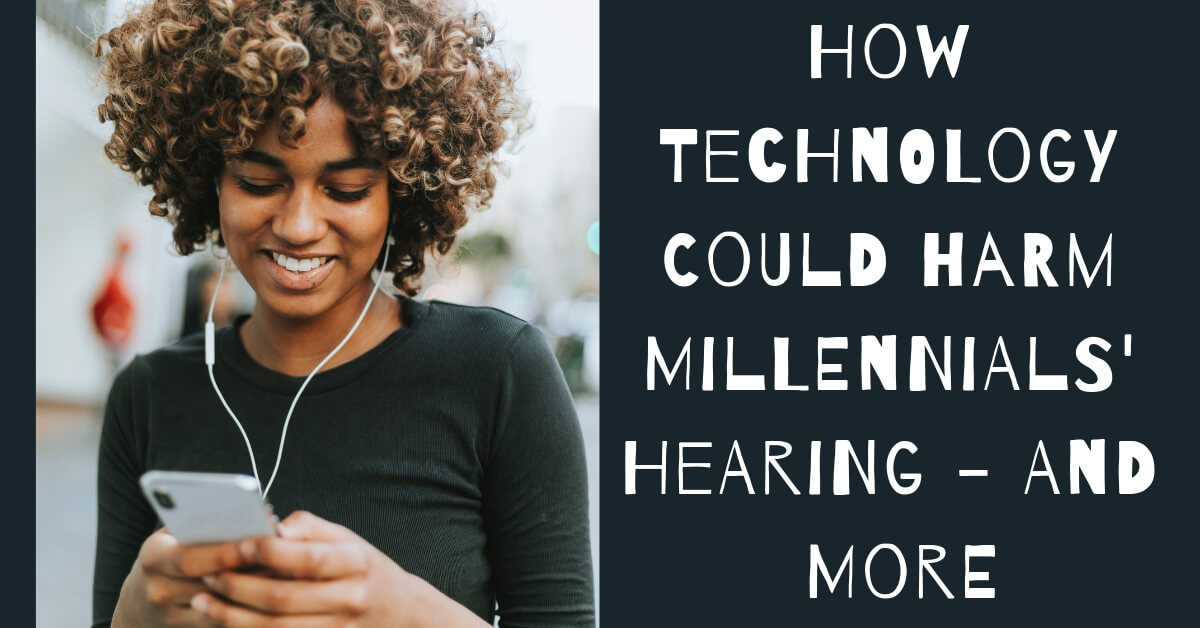All About Bluetooth Hearing Aids
Do you remember the hearing aids your parents or grandparents used to

By: admin | January 21, 2019
Technology has had a huge impact on every area of our lives. From using driving directions, looking up recipes, or having the answer to every question right at our fingertips, there’s no denying our lives are very different now than even 10 or 15 years ago. We can connect effortlessly with people all over the world, order products from across the country, and translate on the spot when traveling to a foreign city. But despite all the benefits of technology, not everyone is singing its praises, particularly when it comes to hearing, and matters of overall physical and mental health.
Millennials use technology all day every day. Older generations often criticize this use of technology, but it’s led to rapid advancements in many fields. Whether on cellphones or laptops, millennials can often be seen with earbuds blasting music, seemingly unaware of the possible negative consequences of their use of technology.
The Centers for Disease Control and Prevention (CDC) states that hearing loss is the third most common chronic health condition in the US, and younger generations are more at risk of hearing loss than ever before. From noisy jobs to excessively loud leisure activities such as sports events, music concerts, or during a night out with friends, hearing loss is affecting young adults and teens at alarming rates.
Another reason for the rise in hearing loss is due to overuse of personal listening devices, which do a lot more damage than millennials realize. In fact, a 2017 study by the CDC found that 8 million Americans in their 20s already had some hearing loss, and often suffered from tinnitus, that annoying ringing of buzzing in the ears.
Another reason Millennials might be suffering from the high usage of technology is due to the sedentary lifestyle that often accompanies heavy technology use. Millennials who are always on their phones or computers tend to have a higher weight, are more likely to have hypertension, and often suffer from high cholesterol levels or diabetes. Bad posture from hunching over their screens can cause problems in the neck and back, as well as weaken other muscles and lead to poor overall health.
Technology can also have a major impact on your social life, and being connected online might actually mean you’re less connected in person. It’s important to unplug and interact with the people around you, make friends, and enjoy time together. Spending too much time with technology has led many millennials to struggle with social anxiety, loneliness, and even depression. When it becomes easier to send a text than to spend time with people in real life, you know you have a problem, and technology could be doing a lot more harm than you realize. In fact, according to a recent Blue Cross Blue Shield Association study, major depression diagnoses have increased among Millennials by a staggering 47%!
Doctors are starting to draw connections between technology use and hyperactivity attention deficit disorder, or ADHD. More and more children, teens, and young adults are receiving an ADHD diagnoses, and technology could play a role. The overuse of technology causes overstimulation, and especially for younger children and teens, this overstimulation can make it extremely difficult to focus on tasks like homework or chores.
While technology makes our lives simpler in many ways, and none of us want to give up our cellphones, it’s important to recognize the risks associated with technology use, both to our hearing and more. If you have a millennial in the family, encourage them to disconnect more often, and limit their technology usage. Going out for a walk, visiting a friend, or even picking up a book can do wonders for their hearing health and overall health and happiness.
If you or a millennial in your life is suffering from hearing loss due to unsafe listening practices, or other overuse of technology, visit us today at Orange Country Physicians’ Hearing Services for a hearing test, and to discuss your treatment options. We know you don’t want to be disconnected, and we have hearing aids that have the best connectivity features, so when you do want to use technology, you’ll be able to do so with ease.

Do you remember the hearing aids your parents or grandparents used to
By: admin | August 7, 2022

Do you ever find yourself at the end of a long day only to be confronted
By: admin | August 7, 2022

How Common is Hearing Loss Many people might be shocked to learn how
By: admin | June 22, 2022
